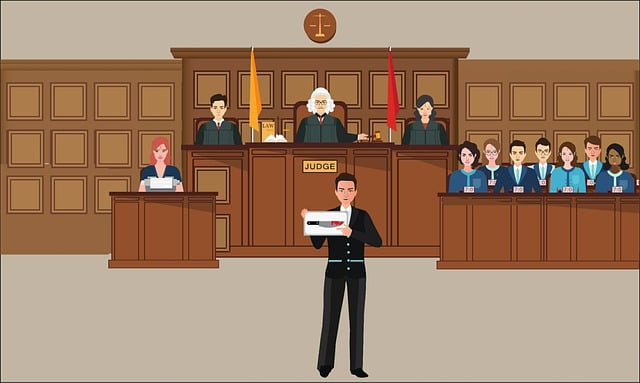
Category: criminal defense
Criminal Defense: Navigating the Complexities of Legal Protection
Introduction
In the intricate web of legal systems worldwide, criminal defense stands as a cornerstone, safeguarding individuals from the weight of criminal accusations. This comprehensive article delves into the multifaceted world of criminal defense, exploring its historical roots, global impact, and the continuous evolution it undergoes in response to changing societal needs. Through an in-depth analysis, we will unravel the intricacies, challenges, and future prospects that define this vital legal field. By the end, readers will gain a profound understanding of how criminal defense contributes to justice, fairness, and the overall well-being of society.
Understanding Criminal Defense: A Foundation of Legal Protection
Definition:
Criminal defense is a critical aspect of the legal process that focuses on protecting individuals accused of committing crimes from excessive punishment or wrongful conviction. It involves a range of strategies and procedures employed by lawyers to ensure fairness, challenge evidence, and assert the rights of the accused.
Core Components:
- Legal Representation: Criminal defense attorneys play a pivotal role in representing clients, providing them with legal counsel and guidance throughout the criminal proceedings. They interpret complex laws, navigate court systems, and advocate for their clients’ interests.
- Challenging Evidence: Defense lawyers scrutinize prosecution evidence, often employing expert witnesses and legal arguments to undermine its credibility or highlight inconsistencies. This process ensures a fair evaluation of facts.
- Protecting Constitutional Rights: One of the primary goals is to safeguard the constitutional rights of the accused, including the right to remain silent, the right to an attorney, and protection from excessive bail or cruel punishment.
- Sentencing Advocacy: Lawyers argue for reduced sentences, considering mitigating factors and alternative punishments, ensuring that justice is served while allowing for rehabilitation.
Historical Context:
The roots of criminal defense can be traced back to ancient civilizations, where legal systems evolved to address societal norms and values. Over time, the concept of defense grew from simple representation to a sophisticated system designed to protect individuals from arbitrary state power. The Enlightenment period saw significant developments, emphasizing natural justice and due process, which laid the groundwork for modern criminal defense practices.
Significance:
Criminal defense is essential for maintaining a fair and just society. It ensures that the burden of proof rests with the prosecution, protecting the innocent from wrongful convictions. By challenging evidence and procedures, defense lawyers uphold the integrity of the legal system, preventing abuses of power and ensuring equal treatment under the law. This fundamental aspect of democracy safeguards individual freedoms and fosters public trust in the justice system.
Global Impact and Trends
International Influence:
Criminal defense practices vary across countries, reflecting diverse legal traditions and cultural norms. However, several global trends have emerged, shaping its evolution:
| Region | Key Trend | Example |
|---|---|---|
| North America & Europe | Indemnity-based System | These jurisdictions often focus on compensating victims rather than punishing offenders, emphasizing restorative justice practices. |
| Asia Pacific | Collective Responsibility | In some Asian countries, criminal defense may involve collective accountability, where family or community members share responsibility for an individual’s actions. |
| Middle East & Africa | Shari’a Law Integration | Certain regions incorporate religious laws, such as Shari’a, into their criminal justice systems, influencing defense strategies and penalties. |
Regional Variations:
- North America and Europe: Known for their robust legal frameworks, these regions prioritize individual rights and due process, leading to extensive criminal defense services.
- Asia Pacific: The impact of collectivist cultural values is evident in some countries, where family and community involvement in defense can be significant.
- Middle East and Africa: Religious laws and traditional justice systems often intertwine with modern criminal defense practices, presenting unique challenges and opportunities.
Trends Shaping the Future:
- Technology Integration: The adoption of digital tools for case management, evidence analysis, and remote court proceedings is revolutionizing criminal defense, improving accessibility and efficiency.
- Specialization in Niche Areas: As legal systems become more complex, specialized criminal defense practices are emerging, focusing on specific crimes or legal avenues.
- International Cooperation: Cross-border crime demands collaborative defense strategies, leading to increased international legal partnerships and knowledge sharing.
Economic Considerations: Market Dynamics and Impact
Market Analysis:
The criminal defense industry is a significant economic sector, with varying market sizes across regions. Key factors influencing its growth include:
- Legal System Complexity: Countries with intricate legal systems often demand more extensive criminal defense services, driving market expansion.
- Incarceration Rates: Regions with higher incarceration rates typically experience greater demand for defense lawyers, impacting the industry’s dynamics.
- Economic Development: Growing economies may witness increased access to legal services, fostering a more robust criminal defense market.
Investment Patterns:
- Private Law Firms: Many individuals and businesses invest in private law firms specializing in criminal defense, recognizing its importance for risk management and crisis mitigation.
- Government Funding: Public prosecutors’ offices receive substantial funding to ensure adequate legal representation for the accused, contributing to the overall market health.
- Legal Aid Organizations: Non-profit organizations play a vital role in providing affordable or free legal aid, catering to low-income individuals.
Economic System Impact:
Criminal defense has far-reaching economic implications:
- Cost of Incarceration: The financial burden of incarcerating individuals can be substantial, influencing policy decisions and resource allocation.
- Productivity and Employment: Wrongful convictions or excessive sentences can disrupt lives, affecting individual productivity and contributing to societal costs.
- Tourism and Business: A well-regarded criminal defense system can enhance a region’s reputation, attracting businesses and tourists.
Challenges in Criminal Defense: Overcoming Obstacles
Common Hurdles:
- Access to Legal Representation: Ensuring equal access to quality legal counsel remains a challenge, especially for underprivileged individuals, leading to potential wrongful convictions.
- Case Complexity: Complex criminal cases demand specialized knowledge, which may be scarce, affecting the quality of defense.
- Prosecution Resources: Well-resourced prosecutors can outmaneuver defense lawyers, creating an imbalance in representation.
Innovative Solutions:
- Public Defender Systems: Many countries have established public defender offices to provide legal aid, ensuring access to representation for all.
- Legal Education Programs: Universities and law schools are introducing specialized training programs to enhance criminal defense capabilities.
- Technology-Assisted Defense: Utilizing advanced analytics and legal research tools can level the playing field, providing defense lawyers with powerful resources.
Future Prospects: Shaping Criminal Defense in a Changing World
Emerging Technologies:
- Artificial Intelligence (AI): AI-powered tools can streamline case preparation, predict prosecution strategies, and enhance evidence analysis, potentially transforming criminal defense practices.
- Blockchain for Record-Keeping: Secure blockchain technology can improve the integrity of legal records, making them more accessible and tamper-proof.
Specialized Areas of Focus:
- White-Collar Crime Defense: As financial crimes become more sophisticated, specialized defense strategies are essential to navigate complex legal landscapes.
- Cybercrime and Digital Defense: The rise of cybercrimes requires lawyers adept at understanding digital forensics and international cyberlaw.
- Restorative Justice Practices: Restorative justice models offer alternative dispute resolution methods, allowing for more harmonious community healing.
International Collaboration:
- Global Legal Networks: Establishing international legal partnerships can facilitate the exchange of expertise, best practices, and resources, addressing cross-border criminal issues.
- Cross-Cultural Training: Training programs that promote cultural sensitivity and understanding will enable defense lawyers to navigate diverse legal environments effectively.
Conclusion: Navigating the Complex World of Criminal Defense
Criminal defense is a dynamic and critical aspect of modern society, constantly evolving to meet the challenges of an ever-changing legal landscape. By understanding its historical roots, global variations, economic implications, and future prospects, we can appreciate its profound impact on justice and fairness. As technology advances and societal norms shift, criminal defense professionals must adapt, innovate, and collaborate to ensure that the rights of the accused are protected while holding offenders accountable in a just and equitable manner. This field stands at the intersection of law, ethics, and social progress, shaping the very fabric of our communities.









